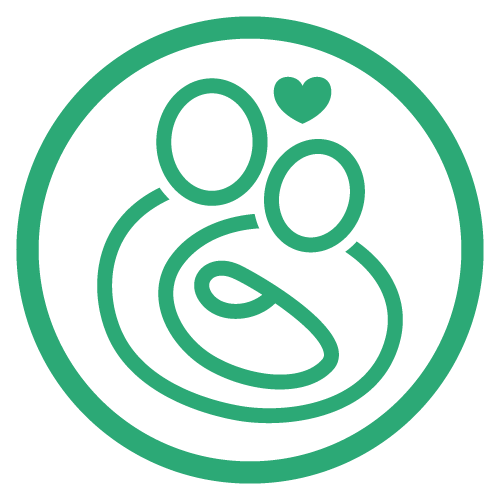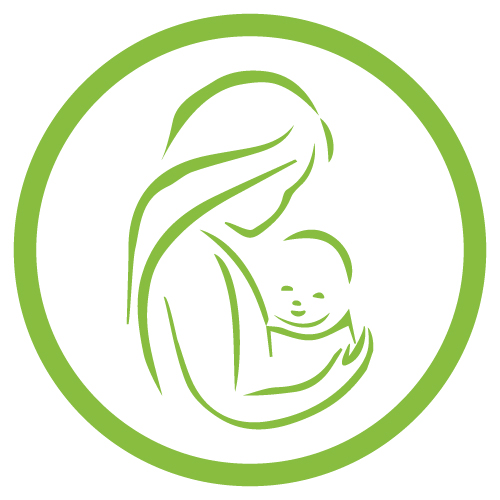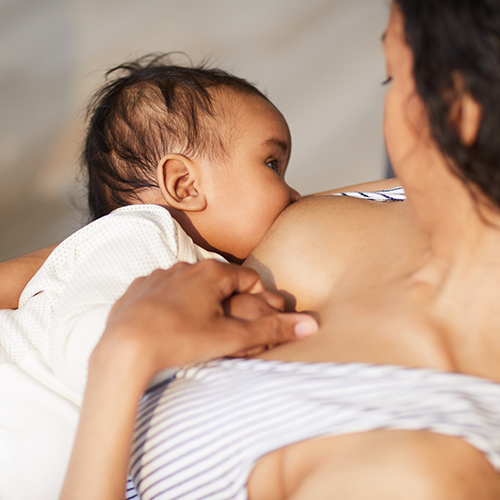 Perinatal Mental Health Online Course(s) & Continuing Education
Perinatal Mental Health Online Course(s) & Continuing Education
Access the latest clinical skills and research for Perinatal Mental Health for Postpartum professional training. These Perinatal Mental Health online courses provide practice-changing skills and valuable perspectives from leading global experts. This Perinatal Mental Health education has been accredited for a variety of CEUs / CERPs and can be accessed on-demand, at your own pace.
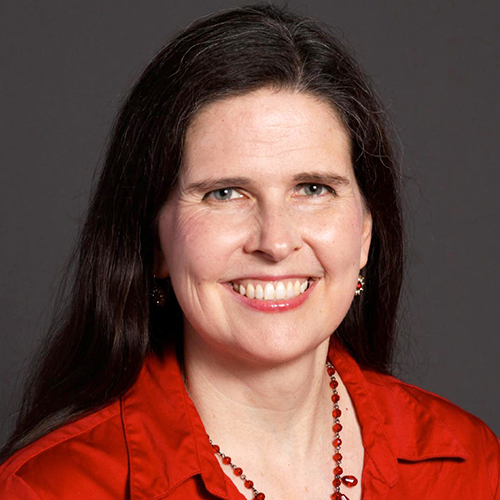
"But You're Supposed to Be Happy!" Perinatal Mood and Anxiety Disorders

Marie Zahorick, MS, APRN, PMHNP-BC, FNP-C, IBCLC became a La Leche League Leader in 1999 and an IBCLC in 2005. After several years of working as a hospital-based bilingual Spanish-speaking IBCLC, she attended nursing school and eventually became a board-certified Family Nurse Practitioner. In the meantime, she continued working as a hospital-based lactation consultant doing inpatient, outpatient, and NICU lactation. She did not get much sleep.
After graduate school, Marie went to work in psychiatry and also did a post-masters certificate to became board-certified in psychiatry and mental health. She was fellowship-trained to manage patients in the acute inpatient setting, partial hospitalization, outpatient office, and OB patients in the general hospital setting.
She specializes in women's psychiatry, especially medical management of women who are pregnant or lactating. Her expertise also includes general psychopharmacology. She is experienced at diagnosing and treating mental conditions such as bipolar disorder, perinatal/postpartum mood and anxiety disorders, postpartum psychosis, obsessive-compulsive disorder, premenstrual and perimenopausal mood disorders, and personality disorders.
She lives in the Chicago area with her husband and three adult children in their 20s. Her children all breastfed for at least two years but now just make faces when confronted with that embarrassing fact.
Topic: Medications and Mothers' Minds: Psychopharmacology for Lactating Mothers - [View Abstract]
Perinatal mood and anxiety disorders (PMADs) include a spectrum of commonly-occuring mental health disorders. About 17% of postpartum mothers worldwide experience depression, with rates climbing to 60% in some low social-economic status women and adolescent mothers.
However, less well-known PMADs include perinatal panic disorder, perinatal obsessive-compulsive disorder (OCD), and perinatal post-traumatic stress disorder (PTSD). These often include very distressing intrusive or bizarre thoughts, behaviors, or flashbacks.
Perinatal bipolar disorder and postpartum psychosis are particularly dangerous due to severe depression, and reckless or bizarre behavior that can endanger mother and baby.
Women with bipolar disorder may have stopped medications during pregnancy and are experiencing mood instability. They may also not realize they have bipolar disorder and require careful diagnosis, since twenty-two percent of depressed women postpartum have bipolar depression. Postpartum psychosis is an emergency and occurs in 1 to 2 of every 1,000 deliveries. This requires immediate hospitalization for safety, due to a 5% suicide rate and 4% infanticide rate. The midwife is part of the safety net for postpartum mothers and is a vital first step for identifying possible PMADs and referring the mother for mental health treatment and support.

An Introduction to Listening Visits in Perinatal Mental Health

Jane has worked in London, Swansea, Bahamas and Oman, as a Mental Health Nurse, Registered Nurse and Health Visitor. She retired from her last post as Senior Lecturer in Public and Mental Health, and now has honorary status. Jane was the first health visitor to be made the President of the United Kingdom Marcé Society and then the International Marcé Society for Perinatal Mental Health. She is currently on the Executive Board of the Marcé Society and is the Director of her training company in Perinatal Mental Health. Many of her courses have been accredited by the Continuing Professional Development Service. Jane is also working closely with the All Wales Perinatal Group and has been involved in many national and international groups.
Topic: The Process of the Listening Visit – Challenges and Successes - [View Abstract]
This session is intended to help the Practitioner understand the process of perinatal mental health and how traditional practices are sometimes an integral part of the perinatal process. It also explores why good perinatal mental health is a prerequisite for a healthy lifestyle for both parent and infant. It examines some of the evidence for the efficacy of the Listening Visit and how the Practitioner can help.
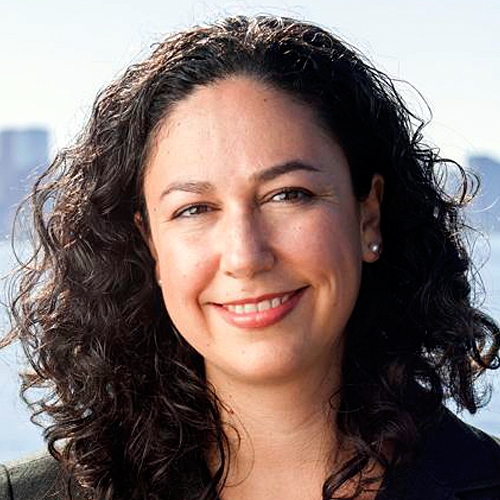
Anxiety and Related Disorders During Pregnancy and Postpartum

Dr. Melanie Badali is a Registered Psychologist in British Columbia, Canada with over 20 years of experience working as a clinician, researcher, and instructor in the field of clinical psychology.
Dr. Badali currently provides psychological assessment and treatment services at the North Shore Stress and Anxiety Clinic, where she is on the Perinatal Services Team. She is certified in the practice of Cognitive Behaviour Therapy (CBT) by the Canadian Association of Cognitive and Behavioural Therapies and works with the organization to advance training, knowledge and accreditation in CBT. She has experience working in a variety of clinical settings including inpatient and outpatient, public and private.
She is also an Associate Faculty member at Yorkville University, where she teaches in the Master's of Counselling Psychology Program.
As a Board Director for Anxiety Canada, a non-profit organization that increases awareness, promotes education and provides resources for people dealing with anxiety, her role includes advocacy, research, knowledge translation and speaking to the media.
Dr. Badali is actively involved in research, training and writing. She enjoys creating psychoeducational resources such as the Canadian Psychological Association’s new factsheet on Perinatal Anxiety and is currently working on the third edition of the book, “Match Made on Earth”.
The perinatal period is a time of great transition and uncertainty. It is normal for women to experience increased stress and anxiety as they adjust to changes in their body and life. But experiencing anxiety is not the same as having an anxiety disorder. Anxiety disorders are associated with intense distress and significant impairment in functioning (which can include problems caring for self and baby). Anxiety Disorders are estimated to occur in 9% to 22% of women during pregnancy and 11% to 21% of women postpartum. The good news is that Anxiety Disorders are treatable. Psychotherapies such as Cognitive Behavioural Therapy (CBT) are effective and have no known contraindications for pregnant and breastfeeding women. The goal of this presentation is to help front line health care professionals recognize problematic anxiety during the perinatal period and identify evidence-based interventions.
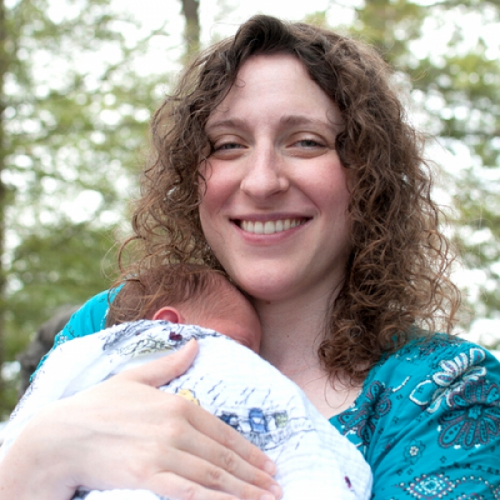

Dr Justine Leach is a speaker and advocate for trauma-informed care in the perinatal period and co-founder of Resilient Birth, a company which trains healthcare providers and other perinatal professionals in supporting survivors giving birth. She also helps expectant parents with histories of trauma prepare for childbirth through trauma-informed childbirth education classes and birth support planning. Dr Leach became a B.A.C.E. certified childbirth educator and advocate after the birth of her two children revealed the impact of trauma experiences on childbirth. She has a Ph.D. on representations of sexual consent in narratives of rape and sexual trauma, and facilitates the Trauma-Informed Perinatal Professionals facebook group. Justine speaks about the experience of giving birth as a survivor of rape and the important role healthcare providers and perinatal professionals play in a birth giver’s experience of trauma or healing.
Topic: Breastfeeding Grief: When Things Don't Go As Planned - [View Abstract]
Survivors of trauma are at an increased risk not only of experiencing post-traumatic stress symptoms during their pregnancy, but also birth trauma and postpartum PTSD. Yet too often survivors’ needs are ignored and traditional childbirth preparation is neither trauma-informed nor supportive of survivors’ emotional experiences. This presentation envisions what childbirth preparation looks like from a trauma-informed perspective. It will explore how to create safety in our relationships with birth givers, how to help survivors feel their power, and how to hold space for their emotional journey to parenthood. I discuss the impact of previous trauma on birth givers in pregnancy and birth, and explore what can be done prenatally to prevent birth trauma. Participants will gain practical skills for supporting survivors’ emotional wellbeing and for helping them to plan for a safe birth experience. This involves rethinking the birth plan. Instead of merely articulating a birth givers’ preferences for or against interventions, a birth plan should be rethought as a Birth Support Plan: that is, it should communicate what a birth giver needs to feel safe, understood, and in control of the decisions they make around their care whether their birth goes to plan or not.

Breastfeeding and Perinatal Mood Disorders: Circuits and Circumstances

Dr. Maria Enrica Bettinelli is Lecturer of Pediatrics, University of Milan, Italy School of Medicine. As IBCLC since 2003, her research focuses on how overcoming barriers to implement breastfeeding support in the community and to promote mother and babies well-being in the perinatal period and the first years of life, adopting nurturing care approach. She has authored peer-reviewed publications on baby friendly community, breastfeeding rates in Lombardy, and the maternal and child health effects of lactation.
Her current research includes the clinical management of breastfeeding difficulties and how emotional experiences impact on breastfeeding decision. As Director of Milan Breastfeeding Network in Milan, Dr. Bettinelli leads an interdisciplinary team of clinicians, nurses and midwives that is developing new approaches to management of breastfeeding difficulties and to sharing breastfeeding education. Dr. Bettinelli is a member of the Italian Society of Pediatrics and Italian Society of Neonatology, chairs the Task Group of Education and Conference 2020 of ELACTA Board 2018-2020 and is a member of the ELACTA Board 2018-2020, and since 2012 is a member of the Academy of Breastfeeding Medicine.
Dr. Bettinelli attended University of Milan School of Medicine where she graduated with her M.D. in 1986. She completed her Residency in Pediatrics in 1989 and in Neonatology in 1991 at University of Milan and went on to complete her medical experience at Mangiagalli Hospital in Milan. Dr. Bettinelli obtained her MSc in Perinatal Mental Health in 2019.
She lives in Milan, Italy with her husband and her daughter.
Breastfeeding, attachment, and perinatal mental disorders share the same neurobiological circuits and neurosciences have shown there are connections acting both in a protective and negative sense. Relational experiences in the early years of life put the basis for future physical and mental health. Avoiding early toxic stress is essential in preventing mental problems later. Maternal depression, and in general perinatal mental disorders of parental figures, especially of the mother, have a well-documented negative effect on infants and children, altering the mechanism of responsive interaction. Depressed mothers do not engage with their children and fail to respond to their signals. Children find this situation stressful, and there may be permanent effects arising from being raised by chronically depressed parents.
According to recent studies, breastfeeding helps reduce early toxic stress, as well as allowing optimal nutrition. The responsive interaction mode is the basis of the relationship established with breastfeeding. So breastfeeding has a significant impact on the mental health of children and adolescents. The way mothers respond to their children's needs is the key to understanding these long-term effects. When mothers respond consistently to the signals of their children, they lay the foundations for the resilience of their children. By understanding that the success of breastfeeding is linked to perinatal maternal mental health, we can create awareness when counseling the breastfeeding mother.

Does Breastfeeding Protect Maternal Mental Health? The Role of Oxytocin and Stress

Kathleen Kendall-Tackett is a health psychologist and International Board Certified Lactation Consultant, and the Owner and Editor-in-Chief of Praeclarus Press, a small press specializing in women's health. Dr. Kendall-Tackett is Editor-in-Chief of two peer-reviewed journals: Clinical Lactation and Psychological Trauma. She is Fellow of the American Psychological Association in Health and Trauma Psychology and Past President of the APA Division of Trauma Psychology. Dr. Kendall-Tackett specializes in women's-health research including breastfeeding, depression, trauma, and health psychology, and has won many awards for her work including the 2017 President’s Award for Outstanding Service to the Field of Trauma Psychology from the American Psychological Association’s Division of Trauma Psychology. Dr. Kendall-Tackett has authored more than 460 articles or chapters and is author or editor of 38 books.
Topic: Breastfeeding Helps Mothers Overcome the Legacy of Abuse and Adversity: It Makes All the Difference - [View Abstract]
Topic: Burnout, Compassion Fatigue and Self-Care for Members of the Perinatal Team - [View Abstract]
Topic: Burnout, Secondary Trauma, and Moral Injury in Perinatal Care Providers - [View Abstract]
Topic: Does Breastfeeding Protect Maternal Mental Health? The Role of Oxytocin and Stress - [View Abstract]
Topic: Interplay of Oxytocin and Stress Systems: Impact on Breastfeeding and Mental Health - [View Abstract]
Topic: Lessons to Learn from Fed Is Best: How Can We Improve Our Care? - [View Abstract]
Topic: Mother-Infant Sleep Location: It's Not as Simple as it Seems - [View Abstract]
Topic: Trauma and Breastfeeding: Working Effectively with Trauma Survivors - [View Abstract]
Topic: What’s New in Postpartum Depression? A Summary of Current Findings - [View Abstract]
Depression research contains many conclusions that appear to contradict each other regarding the role of breastfeeding. For example, breastfeeding lowers the risk of depression, but depression increases the risk that breastfeeding will fail. Moreover, breastfeeding problems increase women's risk of depression. These findings are not as contradictory as they may seem. By understanding the underlying physiological mechanism, we can understand these seemingly paradoxical findings. This presentation will describe the link between the stress and oxytocin systems, and how they relate to both maternal mental health and breastfeeding. When the stress system is upregulated, depression and breastfeeding difficulties follow. Conversely, when oxytocin is upregulated, maternal mental health and breastfeeding rates improve. This talk also includes the role of birth interventions and mother-infant sleep, as well as practical strategies that increase oxytocin.

View Details / Enroll


Maureen Campion MS LP is a licensed psychologist and relationship expert. She specializes in the early years of parenting and building securely attached families. Through her weekly newsletter Notes from a Marriage Geek and workshops she offers inclusive, research based marriage and parenting education. She turned her personal birth trauma experience into a passion for guiding couples through their healing and is the author of Heal Your Birth Story. Find Maureen at Marriagegeek.com
While we know how joyous and beautiful birth can be, we also know that about 10-15% of women experience something traumatic at birth. Birth trauma impacts mothers, babies and those that care for them. Psychologist Maureen Campion has been offering her Healing Birth Stories workshop for 9 years and turned her professional and personal work into a book that supports women and families on their healing journey. She offers compassionate and effective tools to support both survivors and the professionals that work in this field. Come join us as we delve into the tough emotions around birth and explore our own trauma while looking at healing and transforming the stories we carry around birth.

Heartbroken: Loss and Grief in the Perinatal Time Period

Cynthia Good, MS Clinical Psychology, is an International Board Certified Lactation Consultant, Clinical Counselor, author, consultant, and internationally recognized speaker. She is the Director of LifeCircle Consulting, LLC and is Certified in Acute Traumatic Stress Management. She is based in the Seattle, Washington, USA area, where she formerly served as an Adjunct Professor in the Department of Midwifery at Bastyr University where she taught counseling skills and is a therapist at Sandbox Therapy Group where she works with children, adults, and families. Cynthia has a strong interest in the emerging field of lactational psychology. She brings the evidence and insights of psychology and lactation consulting to her presentations, providing information and teaching skills that are essential to understanding and effectively responding to the complex psychosocial realities of families living in diverse contexts. The focus of her presentations includes communication skills and counseling techniques for perinatal care providers; equity, diversity, and inclusion; infant feeding rhetoric; perinatal mental health; perinatal loss, grief, and trauma; ethics; serving as an expert witness in lactation-related court cases; cultural competence and humility; vitamin D; and more.
Topic: Cultural Competence or Cultural Humility? A Roadmap for Lactation Specialists - [View Abstract]
Topic: Heartbroken: Loss and Grief in the Perinatal Time Period - [View Abstract]
Topic: It Wasn’t Supposed to be Like This: Traumatic Birth, Traumatic Stress, and Breastfeeding - [View Abstract]
Topic: My Brain is Doing What? Bias, Ethics, and the Lactation Specialist - [View Abstract]
Topic: Perinatal Mental Health Screening: A Primer for Lactation Specialists - [View Abstract]
Topic: The IBCLC as Expert Witness: Role, Strategies, and Resources - [View Abstract]
Topic: The Rug Pulled Out from Underneath Me: Depression During Pregnancy and After Birth - [View Abstract]
Topic: Unpacking the Invisible Diaper Bag of White Privilege: An Overview of Racial Inequities in Breastfeeding Support - [View Abstract]
Topic: We’re Human, Too: Hidden Dynamics in Our Communication with Clients - [View Abstract]
A variety of losses and types of grief are common in the perinatal time period. Some of these losses are specifically related to the reproductive and perinatal experience and some just happen to occur during pregnancy or after birth. Perinatal care providers who understand the diverse experience of loss and grief are better able to provide compassionate and effective care for the families they seek to serve. This presentation provides an overview of loss and grief, including the difference between bereavement, grief, and mourning; ambiguous loss; disenfranchised grief; prolonged grief; chronic sorrow; and depression. It also describes skills—such as companioning, screening, and referral—that are part of providing grief-sensitive care to expectant and new parents who are coping with loss and grief.

View Details / Enroll


I am a Clinical Psychologist and transformation coach for women. I’ve also taught childbirth education. I have 12+ years experience supporting families through the worst traumas imaginable, to find growth, strength and beautiful resilience they never knew possible. After experiencing my own birth trauma (twice!) I quickly learned how little support and training there is for our birth workers who hear and witness these stories every day. From this, I developed two birth trauma training courses – one for parents, and one for birth workers. I gained over 650 enrolments in 3 months, so I know how much this work is needed. I also run a birth trauma training podcast, and I’m currently finishing writing my book. A beautiful, heartfelt call to action for families to not only find strength and growth after birth trauma, but to become the guardians of change in birth culture for the next generation.
"Birth trauma impacts at least 1 in 3 birthing people, but who is often left out of the picture? The partners. Vicarious trauma in birthing partners is very real, and yet there is little to no acknowledgment let alone resources to help.
Witnessing birth trauma in one’s partner has the potential to: (1) create severe cognitive dissonance (“I know what happened to my partner was wrong, yet I did nothing to stop it”), (2) contribute to unresolved feelings of shame, guilt, helplessness and rage, and/or difficulties with bonding (3) contribute to heightened nervous system activity (e.g., oscillating between ‘fight’ mode and ‘freeze’ mode), and (4) contribute to unhelpful, negative birth storytelling culture which minimizes the role of partners.
On the contrary, partners who are well supported (emotionally, cognitively and socially) have phenomenal potential for growth. In this presentation, we will explore what it means to work with partners through the lens of posttraumatic growth. How to validate and educate about trauma in a way that allows partners to step into self-compassion. We will explore how to inspire partners to see their own potential for growth, leadership and even advocacy.


Linos Muvhu is The Secretary and Chief Talent Team Leader of Society for Pre and Post Natal Services’ (SPANS) Maternal, Paternal and child mental health programme in Zimbabwe. SPANS promotes good mental health across the life course starting in the perinatal period. It is a national evidence based family focused program. Linos trained as a family therapist with Connect (Zimbabwe Institute of Systemic family Therapy). He is Africa Ambassador for Fathers Mental Health Day and passionate about the rights of all people to enjoy good sound mental health, in particular the right for good family mental health and in 2016, he initiated the first ever International Conference on Maternal Mental Health in Africa (ICAMMHA.)
Poor mental health affects the expectant mothers and father's overall emotional, environmental, social, spiritual and physical well-being, but also impacts unborn, newborn and developing children, partners, family, friends, and society as a whole. Championing early diagnosis and screening of mental health to every expectant mother and father during their routine antenatal and postnatal care visits; Awareness campaigns in communities about maternal, paternal and child health mental health issues to improve the uptake of services; Training community health care workers (early detecting, screening, and treatment of maternal and child mental illness). The Mashonaland east province under Goromonzi district is a pre-urban and a rural setting in Zimbabwe. A neglected area that significantly impacts maternal and child mortality and morbidity are that of maternal, paternal and child mental health is the main area of focus of this presentation.







